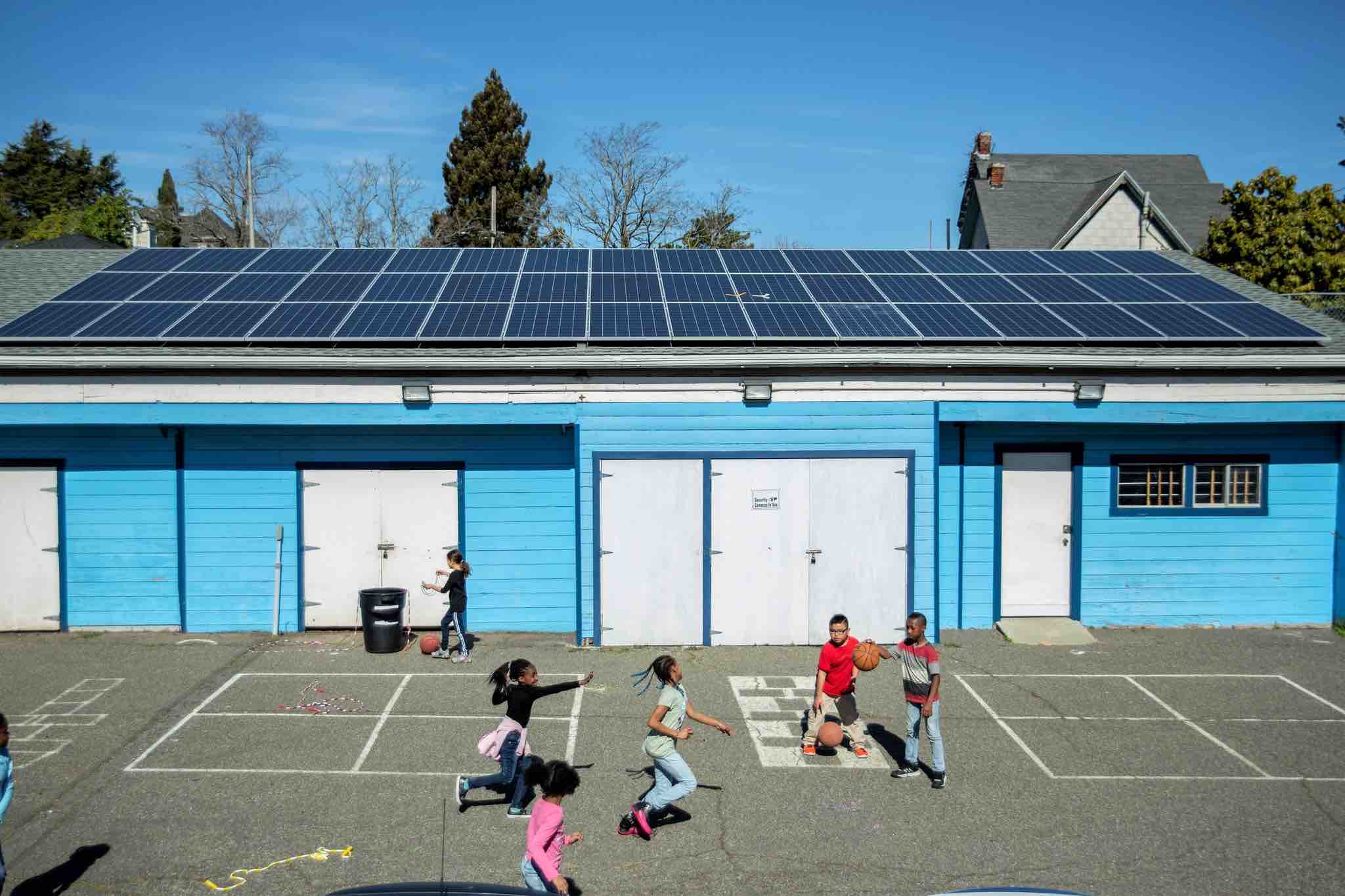Solar energy systems cost a lot of money, so you don’t see many nonprofits with solar-powered operations. To address the problem, one of those nonprofits has developed an innovative financing model that funds solar energy projects and then uses the ensuing payments to support even more of them.
That’s the idea behind RE-volv, a self-described “climate justice nonprofit that helps nonprofits in underserved communities” go solar. The San Francisco-based organization’s mission is to empower “people and communities to invest collectively in renewable energy” with the idea that “everyone should have the ability to support and spread clean energy.”
Photo Courtesy RE-volv
Since that’s not economically feasible for everyone, RE-volv developed a way to make it happen. According to Triple Pundit, its model helps nonprofits add rooftop solar panels with long-term financing and no upfront costs. The organizations not only get access to normally unavailable funding, but they also save 15% or more on their energy bills immediately. Financing is available to nonprofits nationwide through Power Purchase Agreements or solar leases.
After the nonprofits start making payments on the solar panels, RE-volv reinvests the money into its Solar Seed Fund, which earmarks money for more solar projects in communities across the United States.
The organization calls it a revolving, “pay-it-forward” model that “continually perpetuates itself” by building more solar.
“Nonprofits provide vital services in the U.S. — from affordable housing to health care, from addressing food insecurity to providing education and job training,” Andreas Karelas, RE-volv’s founder and executive director, told TriplePundit in an interview. “Whatever the charitable mission of the organization may be, nonprofits spend a large percentage of their budget on operational costs like keeping the lights on. By saving them money on their electricity bills through solar, nonprofits are able to put that money back into their mission, better serving their constituents.”
Photo Courtesy RE-volv
Over the past decade, RE-volv has installed more than 3.5 megawatts of solar capacity for more than 50 community-based nonprofits across 14 states, Triple Pundit reported. Collectively, these organizations have saved $20 million on their energy bills.
Although solar installation tax credits have been available to homeowners for many years, nonprofits couldn’t claim the credits until the Inflation Reduction Act passed in 2022, PV Magazine reported. Now that the credits are available, solar is a much more attractive investment. Even so, it’s not easy for nonprofits to get financing. That’s why the RE-volv program is so important.
“To date, the benefits of clean energy have eluded so many, especially in low-income communities and communities of color, due to a lack of financing options available,” Karelas said in a February press release. “This historic investment demonstrates that now is the time to deploy capital in clean energy projects that benefit frontline communities and vulnerable populations.”
Photo Courtesy RE-volv
RE-volv got a major financial shot in the arm in February when it closed a $3 million funding round led by The Kresge Foundation and the Schmidt Family Foundation.
The money went to communities around the country, with a particular focus on New York, New Jersey, Massachusetts, and California.
As Triple Pundit noted, The Kresge Foundation’s investment in RE-volv was part of a broader $7 million package designed to increase solar capacity in neighborhoods of color.
“Climate change overburdens people of color and low-wealth communities, which are more likely to face power affordability issues, experience intermittent power loss, and live adjacent to polluting energy sources that impact health,” Joe Evans, portfolio director and social investment officer at the Kresge Foundation, said in a statement. “Investing into community-serving nonprofits ensures the benefits of solar will meet communities where the need is greatest.”





